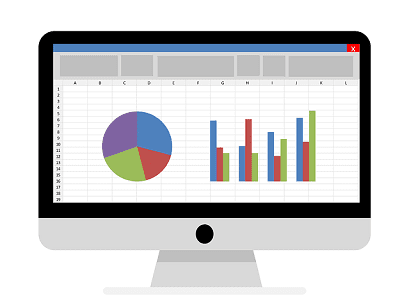Everyone has an obsession with reporting. Everyone is benefitted with better reporting with better time spent on it.
Bad reporting is similar to pointless meetings. SEO analysts spend hours and hours creating SEO project report that no one sees or maintain dashboards that no one will look at. Bad reporting can be either focusing on the wrong goals or picking up the right goals with the wrong ways to measure them.
Your SEO efforts should be always measurable, through which, we can get the better show of our improvements or negative aspects of the SEO to cover them up in the upcoming periods.
Over the years, we at Evincera have been creating reports and dashboards for our clients to give them proper information of their SEO growth and here are some of the things we have learned so far…
1. What is the goal of a report and a dashboard and how they are different?
2. Who is benefitted by the data?
3. What makes a perfect dashboard?
4. What makes a great report?
Here is the explanation for these things:
Dashboard and reports are different
Dashboards should measure goals over the time and be easily understood at a glance. Whereas, SEO report should be helpful in decision making.
Who is benefitted by the data?
This context can inform a lot of our decisions. We care about our audience, as a result of all of them understand and care about very little things too..
A C-level executive doesn’t care about keyword cannibalization, however, most likely does care about the general performance of selling. An SEO manager, on the opposite hand, most likely will care concerning the number of pages indexed and keyword cannibalization, however, a smaller amount is bothered by the general performance of marketing.
Don’t get confused with the audience level
If anyone tells you that the reports you are making are for audiences with clearly different decisions levels, then you will end up in making the things that won’t fulfill the goals we talked about above.
Split your SEO performance report into single reports or dashboards for each audience or they will be left unnoticed.
Know your audience and what they care about
How does one recognize what your audience will care about? Ask them. As a rough guide, you can assume individuals usually care about:
The goals that their jobs rely on. If your SEO manager is being paid because the business needs to rank for 10 specific keywords, then they’re unlikely to care regarding much else.
Budget or individuals they need control over.
But seriously, ask them about the things they care about.
Educate your audience
Asking them is especially important because you don’t simply need to perceive your audience – you may also have to be compelled to educate them. Speaking of other things, there are indeed CEOs who will care about specific keywords.
The problem is, they shouldn’t. And if you can’t convince them to stop caring this metric, their incentives will be wrong and succeed in search are going to be tougher. So ask. Persuading them to prevent using the incorrect metrics is, of course, another article in and of it.
Discover more from DigiPro Marketers
Subscribe to get the latest posts sent to your email.


Good explaination about the need of reporting in SEO
Thanks a lot santosh 🙂
Good article. From today I will ask my team to do SEO reporting.
Shilpa Thanks! a lot, for appreciating
A useful tip on SEO reporting. Nice explanation and happy to see this type of rare article on SEO reporting. This helps SEO analysts and thanks for sharing this. Good one.